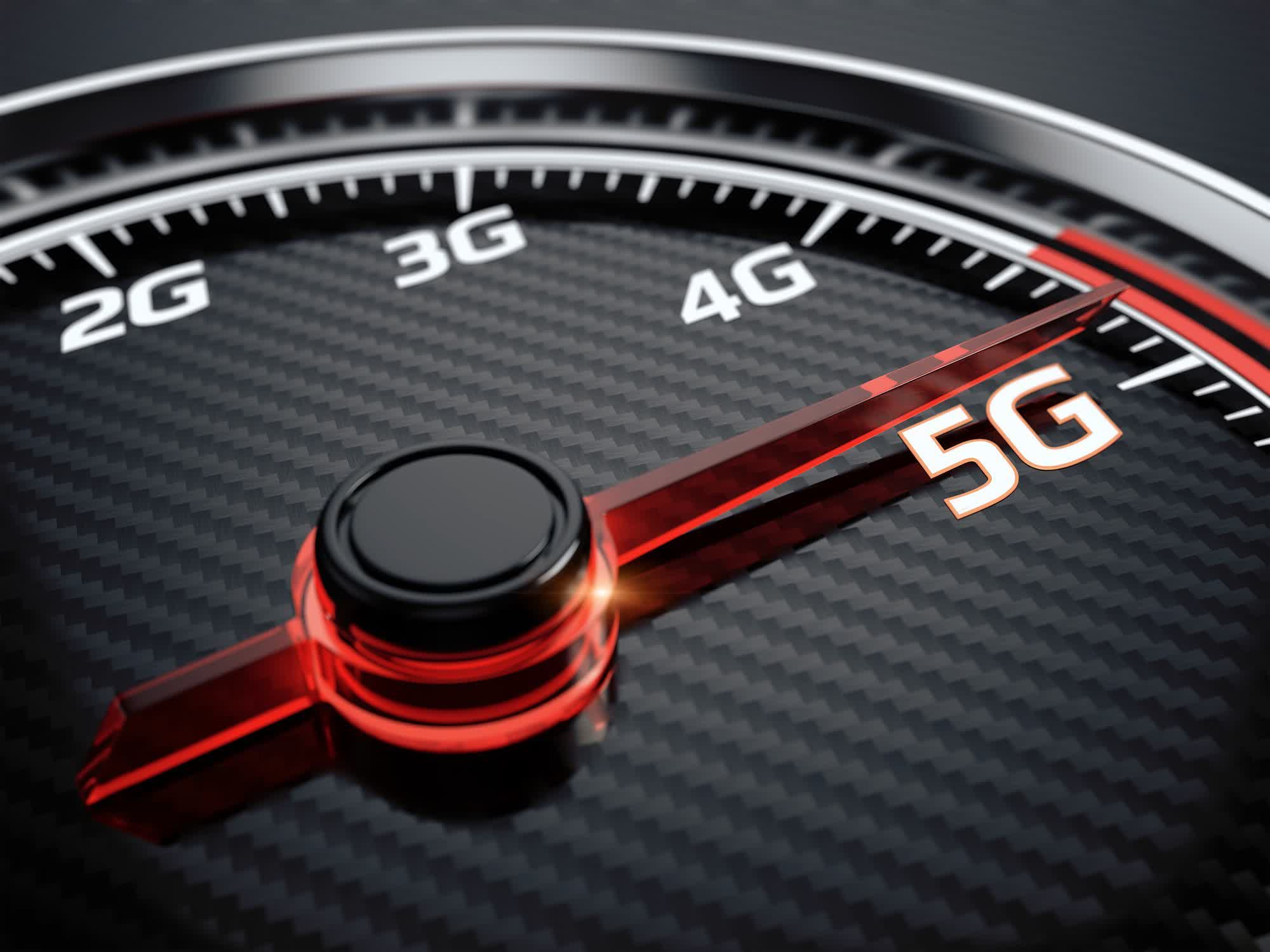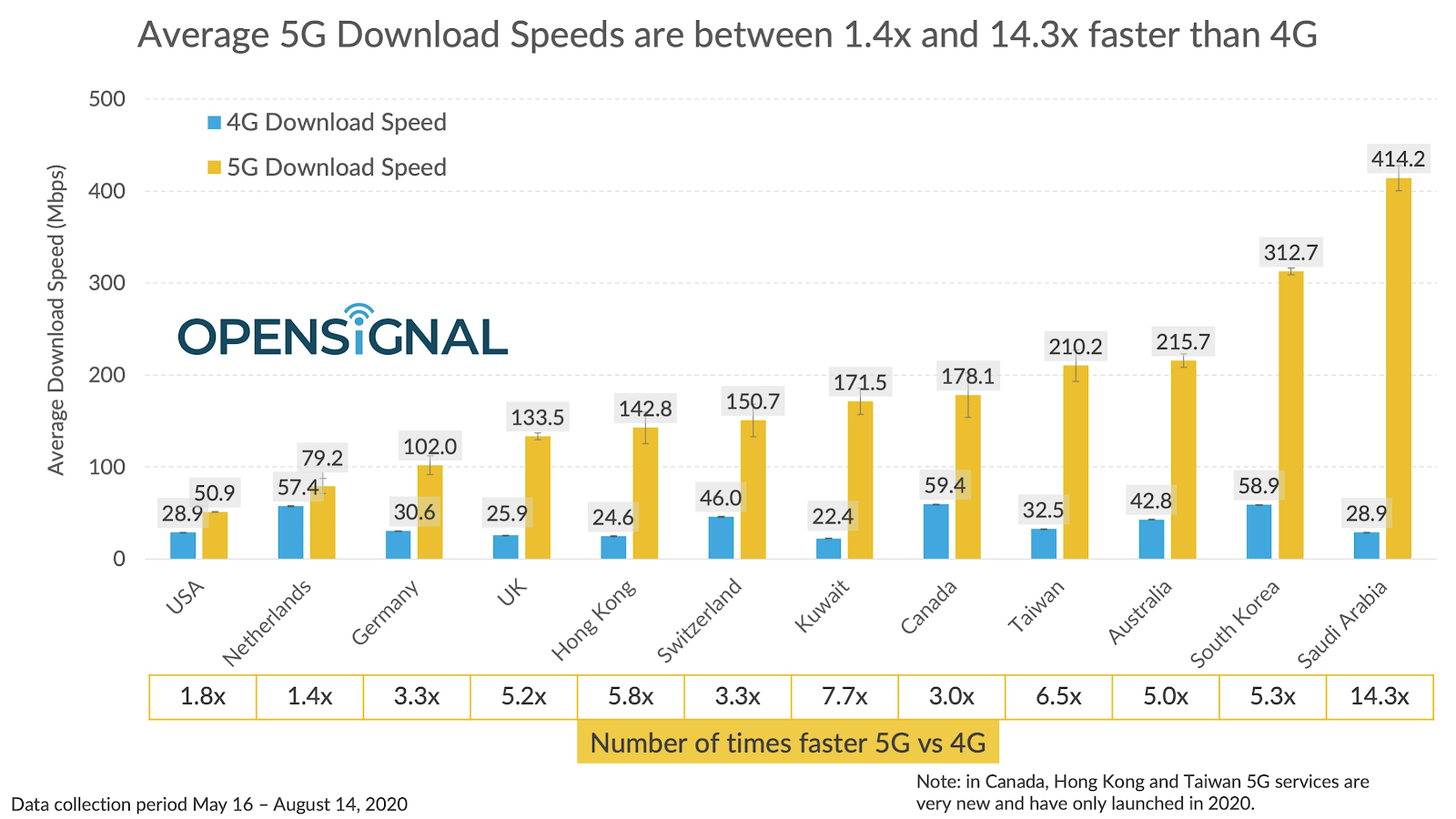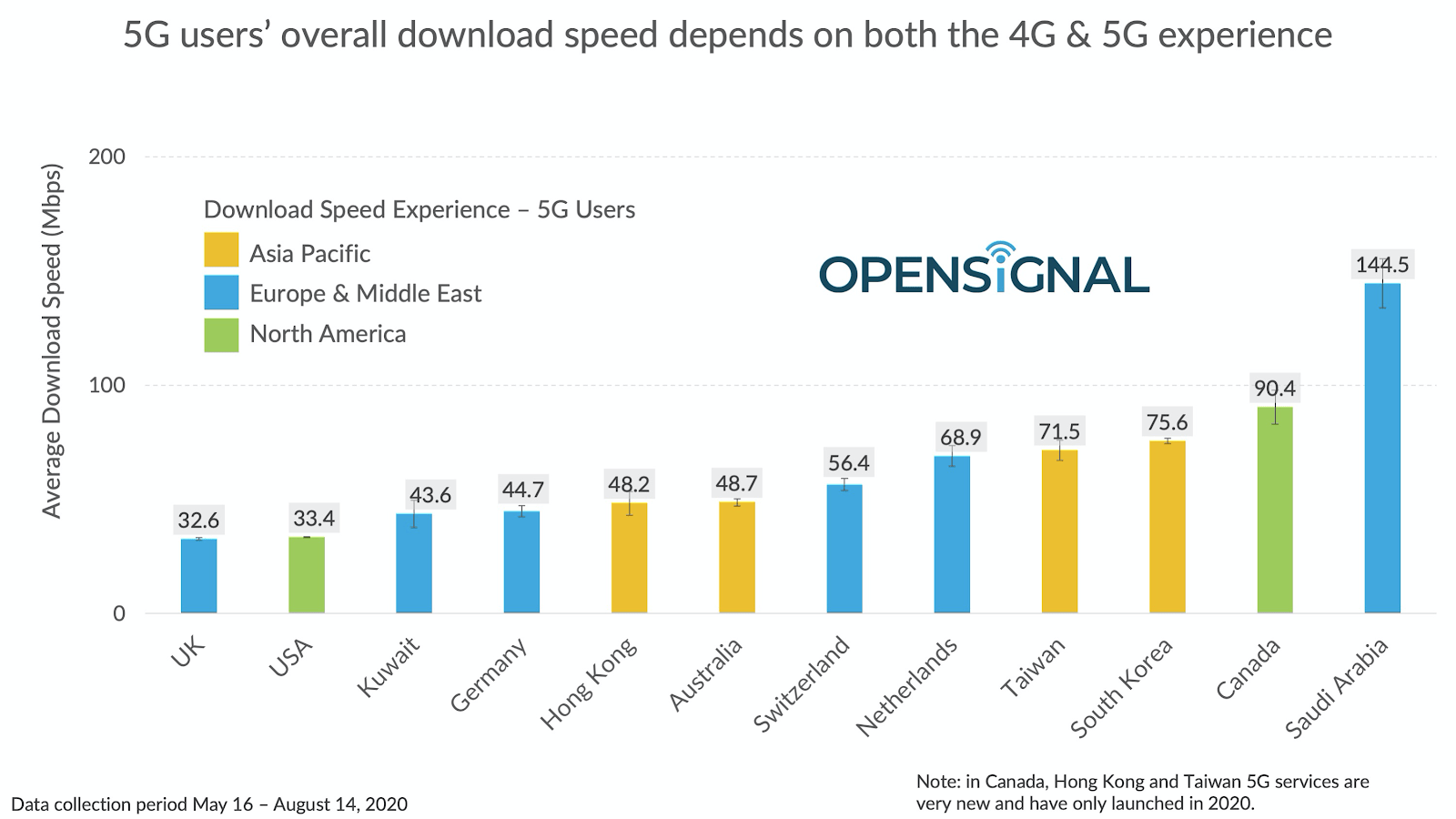Why it matters: Remember in the run-up to 5G when we were promised speeds well over one hundred megabits per second? That's been the case in many countries, but not the US. In a new report analyzing 5G downloads across 12 different nations, America came last with an average speed of 50.9Mbps.

OpenSignal's report is based on user results from its speed-test apps taken between May 16 and August 14. It also examined 4G data, and while the average 5G speed in the US is 1.8 times higher than the average 4G download (28.9Mbps), other countries enjoy much faster next-gen network speeds.
The only other country with a 5G speed lower than 100Mbps is the Netherlands (79.2Mbps). The fastest, meanwhile, is Saudi Arabia, which boasts a massive 414.2Mbps, though its average 4G speed is the same as the US.
The report also looked at speeds for those who use 5G at least some of the time. This takes into account both 4G and 5G average download speeds, as well as the time connected to each technology. In this instance, the US was second from last with an average speed of 33.4Mbps. Only the UK was lower (32.6Mbps).
Why does the US lag so far behind others when it comes to 5G? According to OpenSignal, it's "due to a combination of the limited amount of new mid-band 5G spectrum that is available and the popularity of low-band spectrum—T-Mobile's 600MHz and AT&T's 850MHz—which offer excellent availability and reach but lower average speeds than the 3.5GHz mid-band spectrum used as the main 5G band in every country outside of the US."
A previous OpenSignal report showed that Verizon's mmWave-based 5G service offers an average 5G download speeds of 494.7Mbps—faster than Saudi Arabia—but its small size meant it did not affect overall 5G average download speeds. The other big three providers paled in comparison, with AT&T at 60.8Mbps, Sprint offering 49.5Mbps, and T-Mobile last with 49.2Mbps.
It was also found that T-Mobile was the best provider when it came to availability; users of the speed-test app were able to connect to a 5G service 22.5 percent of the time. It was followed by Sprint (14.1 percent), AT&T (10.3 percent), and Verizon (0.4 percent).
Main image credit: Sashkin
https://www.techspot.com/news/86529-us-lags-behind-other-countries-when-comes-average.html



